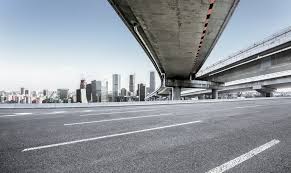More concrete, more heat: Why our cities are hotter than ever
Even as large parts of the country swelter in a brutally hot summer, with prolonged heat waves, a recently published report shows that rising temperatures is not the sole contributing factor to the heat stress being experienced in urban India. According to a report by the Centre for Science and Environment, the extreme discomfort of the summer months in Chennai, Mumbai, Delhi, Bengaluru, Kolkata and Hyderabad over the last two decades is caused by a combination of air temperature, land surface temperature and relative humidity, as well as a rapid increase in built-up areas and concretisation. It poses a grave risk to lives, especially among vulnerable groups like the elderly, babies, pregnant women, those who live in slums and work outdoors.
This is the third straight year of severe heat waves in India, which have been far longer — over 10 days-long — this time than the usual four to eight days. Thanks to climate change, temperatures have shot up, as has humidity. But, as the CSE report points out, the effect of this — the moisture in the air keeps sweat from evaporating fast enough, making it seem even hotter than it actually is — is compounded by other factors, including changes in land use and the growing urban sprawl. This has resulted in the “urban heat island effect”: The trapping of heat due to a dense concentration of buildings, paved roads and other surfaces made of materials like concrete, glass and steel, results in higher temperatures in city centres than in the outlying areas. One alarming consequence of this is that summer nights now offer little respite from the searing heat of the day, with cities across climatic zones not cooling down at the rate they once did. This is a serious cause for concern as the heat stress continues to build, increasing the risk of heat-related illnesses and even death.
All these factors would need to be taken into consideration for relief measures to be effective. While more than 20 states have worked with the NDMA to create heat action plans (HAP), most remain on paper. They are hampered by a lack of funding, granularity and a sustainable vision for transformation. There is a growing consensus among experts that city-specific management plans, which take into account local factors, are a far more effective response to heat waves. Such plans should prioritise green spaces and water bodies and target all heat generators, including vehicles, industries and concrete surfaces — an example is Ahmedabad’s Cool Roofs programme, which offers an affordable solution for the urban heat island effect. Along with emergency steps to be implemented during a heat event, long-term planning can keep cities from heating up excessively and save lives.
